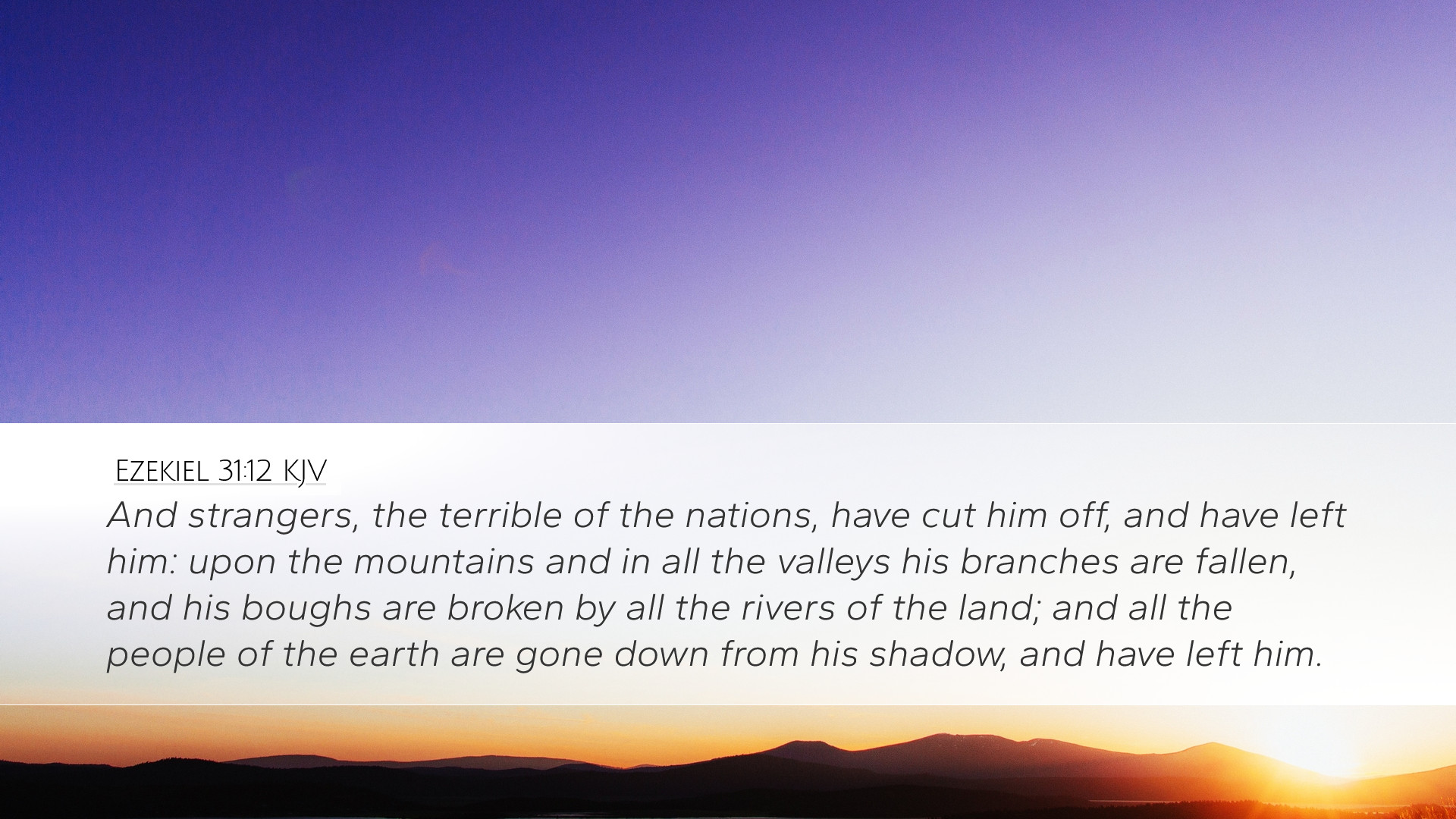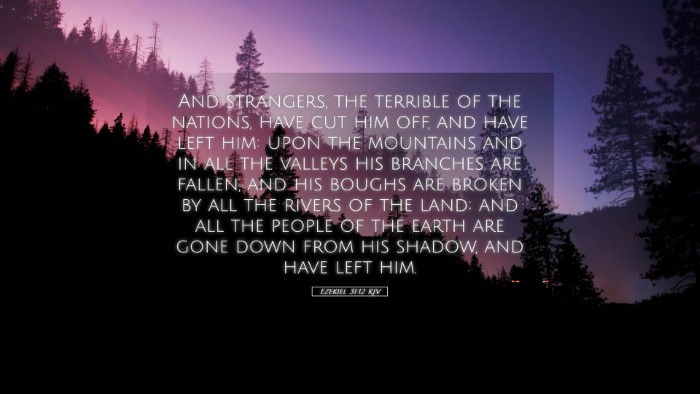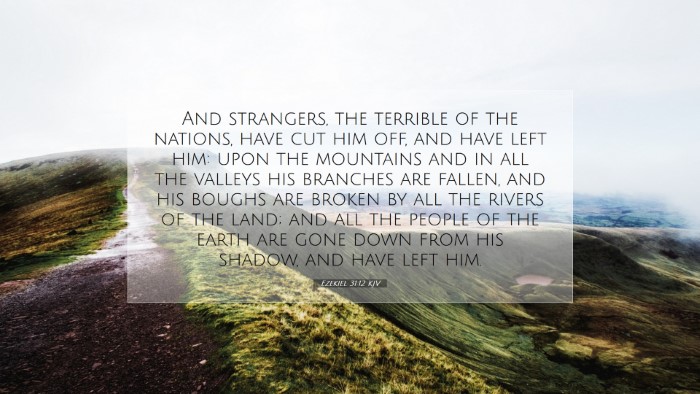Ezekiel 31:12 - Commentary Summary
Verse Text: "And strangers, the terrible of the nations, have cut him off, and have left him: upon the mountains and in all the valleys his branches are fallen, and his boughs are broken by all the rivers of the land; and all the people of the earth are gone down from his shadow, and have left him."
Introduction
This verse from Ezekiel paints a vivid picture of the downfall of the majestic Assyrian empire, symbolized by a great cedar tree. The imagery employed by the prophet is deeply rooted in the natural world, conveying both the grandeur of the empire and its eventual destruction. In this commentary, we will explore insights from Matthew Henry, Albert Barnes, and Adam Clarke to deepen our understanding of this text.
Contextual Background
Historical Setting: The context of Ezekiel's writing is crucial for understanding this verse. The Assyrians were once a dominant power, but their arrogance and cruelty brought about their own demise. This metaphor of the cedar tree exemplifies their once lofty status, now reduced by divine judgment.
Interpretation of the Verse
Matthew Henry's Insight: Henry emphasizes that the “strangers” or “terrible of the nations” signify foreign invaders and destructive forces that God orchestrates to bring judgment upon the Assyrians. The cutting off of the tree symbolizes a dramatic and inevitable decline from greatness to despair.
Albert Barnes' Perspective: Barnes focuses on the geographical mention of "mountains and valleys," explaining that the tree's branches are not just fallen for lack of strength, but rather by the direct action of these invaders. He suggests that the ‘shadows’ cast by the tree represents the protection and dominion once provided by the Assyrian empire, now wholly lost.
Adam Clarke's Analysis: Clarke elaborates that the branches of the tree, once providing shelter to many, now lay broken and desolate. He enunciates the pity of the situation—what was once a refuge has transformed into a site of abandonment. The tone here is one of lamentation for the lost glory.
Theological Implications
- Divine Sovereignty: This verse strongly affirms God’s sovereign authority over the nations. The fate of empires, like the cedar trees, is in the hands of the Almighty, who lifts them up and tears them down as He wills.
- Human Pride and Its Consequences: The imagery serves as a warning against human pride. The Assyrian king exalted himself, drawing attention to his own greatness, which led to his downfall. This narrative invites introspection among leaders and nations today.
- The Fragility of Power: The decline of the Assyrians exemplifies the transient nature of earthly power. Just as the mighty tree can be cut down, so too can human authority crumble in the face of divine judgment.
Applications for Today
The message of Ezekiel 31:12 is timeless and resonates with contemporary audiences. For pastors, theologians, and students alike, several applications emerge:
- Reflection on Greatness: Leaders are reminded that greatness is temporary and often a facade. Faithfulness to God sustains influence far longer than mere human authority.
- Encouragement for the Oppressed: Just as the oppressive Assyrian empire faced judgment, so too can the oppressed find hope knowing that God sees injustice and intervenes in His timing.
- Call to Humility: Believers are encouraged to maintain humility and reliance upon God rather than their own strength, echoing the message that pride leads to destruction.
Conclusion
Ezekiel 31:12 is a profound reminder of the sovereignty of God in human affairs. Through the imagery of the fallen cedar, we see both a historical lesson and a timeless truth about pride, power, and the inevitable consequences of turning from God. As we reflect on this passage, may we cultivate a heart of humility and reliance on the Lord, recognizing that all great empires—be they ancient or modern—are ultimately under His dominion.


